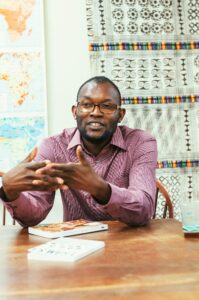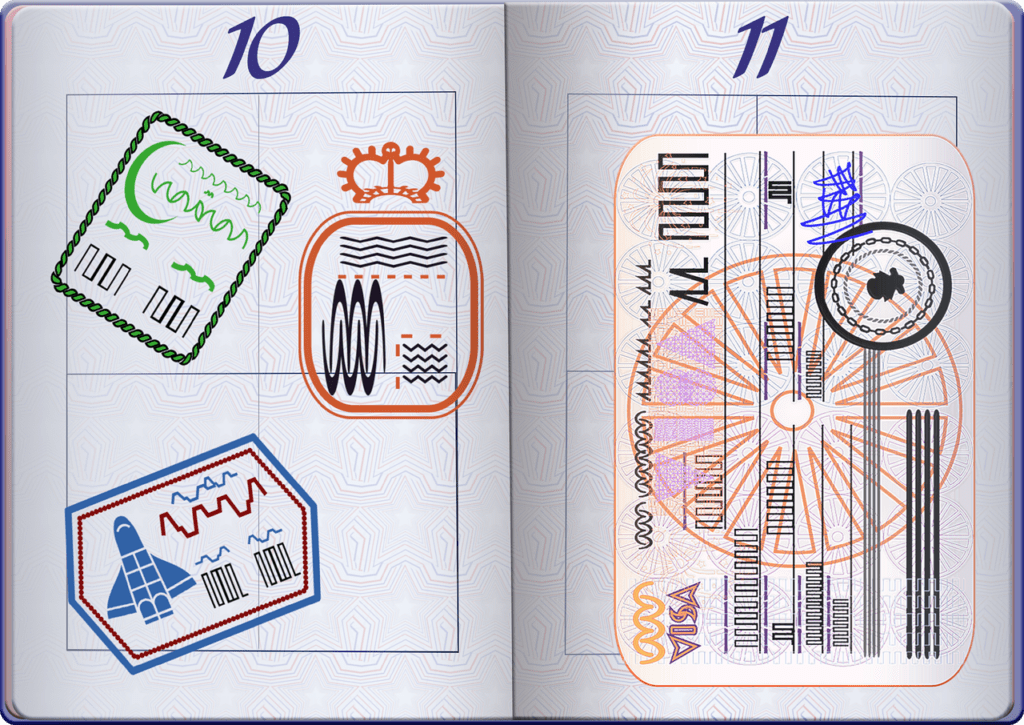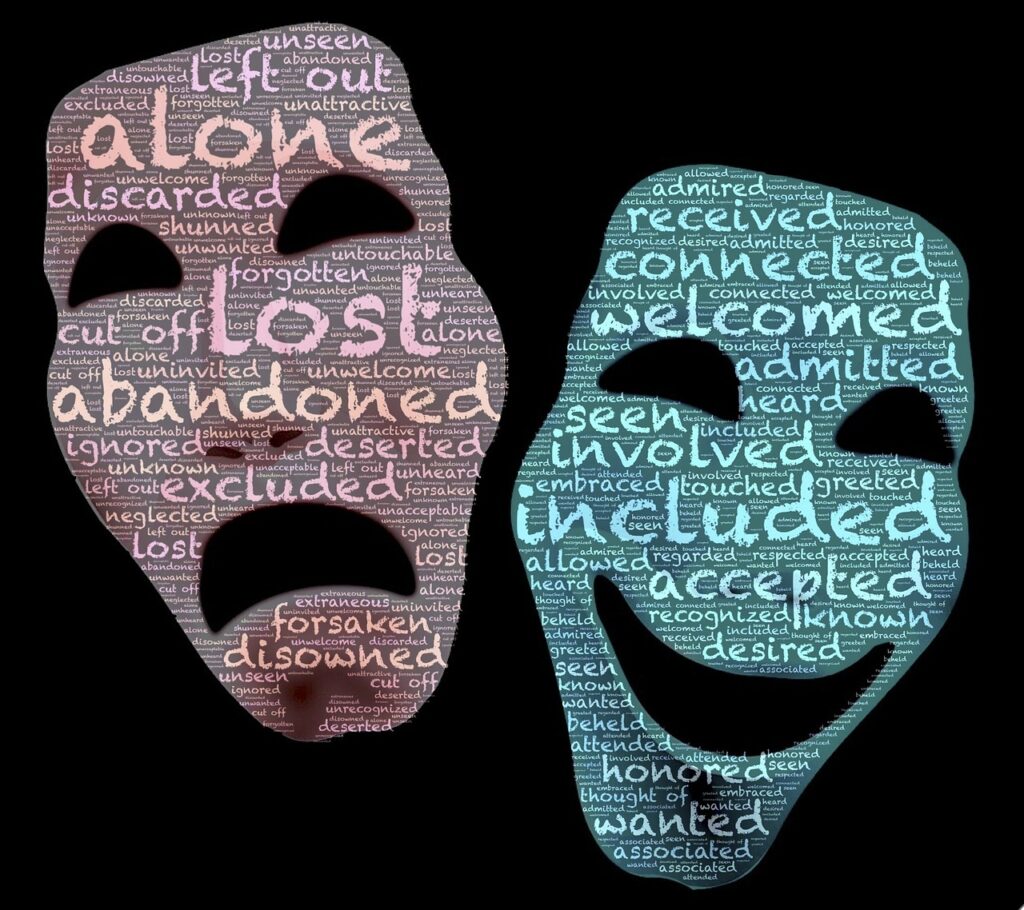Learning Objectives
- to familiarise yourself with the cultural aspect of languages;
- embrace multilingual identities;
- to be able to self-evaluate as an intercultural educator who has openness, acceptance, and appreciation towards all the language speakers and their cultures.
Resources needed
- internet connection
Warning!
You can try out all activities and excercises, but you can't save any data. Please login or create a free account to save your data.
Exercise 1: Language and power
Language is used in multiple ways and for a variety of purposes. For example, you most likely use one or more languages to communicate in different settings with different people. You can use languages to express and live-out your culture and heritage.
Please read below the short excerpt of the article “A literary landscape in flux: Fiston Mwanza Mujila’s take on Congolese and diasporic literature—Authors from the DRC explore new linguistic horizons” (Noubel, 2021). The entire article can be read here.
TIP. You can also read the online article in Arabic, Esperanto, French, Serbian, and Spanish.
Reflect on the following questions:
Why do some of the new generation of authors explore other linguistic environments and what are those new environments?
Especially those authors who are from or whose heritage is connected post-colonial societies explore new linguistic environments, meaning they choose to write in a language other than their native language(s) which is not a colonial language in the authors heritage context. According to Mujila, this is because choosing the language to write in can be a predicament and can come with accusation of cultural betrayal. In those cases, languages carry personal, historical, and cultural connotations which makes authors opt for a third language. Those may be a third native language or the languages spoken in the countries the writers have moved to.
How are language and identity interlinked here?
The excerpt of this article highlights the role and link of language and identity for people with a multilingual background and who have experienced moving to another country. Language is a vehicle for expressing different sides to once identity. Some of the languages Fiston Mwanza Mujila uses serve only one purpose, like talking to his grandparents, others fulfil multiple purposes, like writing drama and communicating in his new home country. He also touched on the issue of language choice for writers from post-colonial societies and the conflicts it can cause. It offers a small insight into the matter of conflicting feelings because of the links between one’s languages and identity. Who a person is, their profession, their families, their ambitions, their origins, all of that and more is expressed by and linked to the languages that shape those aspects of their identity.
What role do languages play in your identity?
Possible answer: [For me personally, languages play a key role in my identity. During my training I met many people with diverse backgrounds and some of them became friends. The languages we share are often not our native tongues, which makes foreign language a crucial tool to stay connected. I was not raised bilingually but always had a keen interest in languages including my own one. I feel a connection to the languages I have learnt and the places where they are spoken (even though my proficiency level is not very high in some of them). Whenever I visit a place and I understand (some of) the language spoken there, I feel like having a broader access to the place and the people there than when being somewhere I don’t the local language at all.]
“A literary landscape in flux”: excerpt

The 2021 Nobel prize in literature went to Tanzanian writer Abdulrazak Gurnah — it looks like African literature is finally getting the attention it deserves. However, Congolese-Austrian author Fiston Mwanza Mujila, asserts that visibility for African authors, particularly the Francophone ones, still remains a challenge inspiring a new generation to explore new linguistic environments. […]
To hear what Francophone African writers experience themselves, Global Voices talked to Fiston Mwanza Mujila, an author who grew up in Lubumbashi in the south of the Democratic Republic of Congo (also called Congo-Kinshasa or the DRC). Mujila was educated in French, his second language after Swahili, and now lives in Graz, Austria’s second largest city, where he has founded the transnational literary festival Weltwortreisende. He writes [drama] in German and his plays […] are performed in Vienna and Berlin. His fiction is produced in French: his first novel “Tram 83,” published in 2014, was translated from French to over a dozen languages and awarded several prizes, including the German International Literature Award.
[…]
The existential question of the choice of language
For many writers from post-colonial societies, the choice of the literary language is often an existential dilemma. This choice sometimes comes with accusations of cultural betrayal by certain parts of those societies. Some exophonic writers opt for an original solution: writing in a third language, usually unrelated to their home or colonial history, such as Bengali-American author Jhumpa Lahiri who now writes fiction in Italian. Here is how Mujila describes his own questioning and possible new direction:
Mujila notes that the Congolese literary tradition is embracing multilingualism: certain writers, such as Richard Ali, write in Lingala. In the diaspora, authors write in local languages: Daniëlle Zawadi writes poetry in Dutch, JJ Bola in English, Kayo Mpoyi in Swedish.
This has led him to define his identity as in constant flow, as he explains:
One term that has emerged more prominently in the past years is the concept of Afropean, a contraction of African and European. Here is Mujila’s take on this notion:
But in the end, the strongest identity marker might simply be literature itself, as Mujila concludes by saying, “in fact, literature is my sole and unique language”[…].
Exercise 2: Multilingual identity
In module 1, you completed the exercise “Diversity in me” (Activity 3) and learned more about your own identities and those of a friend or colleague. You possibly discovered commonalities and interesting unique qualities. Let us now shed some light on a specific part of your identity: your multilingual identity. Looking back at the “Language Passport” you learnt about in this module (Activity 3), how would your personal language passport look like? And remember, it is not about proficiency levels in different languages but about all the language resources you have at your disposal.

Complete the statements:
- Languages I use in my daily life with family, friends or in my spare time, are ...
- Languages I use with colleagues at work are ...
- Languages I use with my pupils in class are ...
- I watched subtitled films or tv-series that were in ...
- On vacations abroad I also learned to speak a few words of ...
- Actually now I come to think of it, my first language has quite a few loanwords from ...
- If I were to learn a new language, it would be ...
Rating
- To what extent does your knowledge of other languages help you in your teaching?
Exercise 3: Implementing language and culture inclusive practices
Please watch this example of a linguistically and culturally inclusive school, based in Mississauga, Canada. This school is part of the Language Friendly School initiative, set up by the Rutu Foundation for Intercultural Multilingual Education, a non-profit organisation based in Amsterdam, the Netherlands. After watching the video, please reflect on the following questions.
What kind of activities did they implement at their school and how do the pupils and the school benefit from them?
The school offers room to show other languages within the school building but also in classroom interactions. Activities include putting languages in the spotlight (language of the month) that involves setting up a bulletin board with facts and common phrases of that language. They try to link the languages of the month with the school district’s heritage month. Teachers encourage the use of technology to, for example complete an assignment in their first language and later translate it into the language of instruction. Teachers also allow classroom interactions in the pupils’ first languages when they are for example discussing new vocabulary or want to re-tell a story.
What other activities or approaches do you know that can foster a linguistically and culturally inclusive school?
Teachers use multiple ways of engaging students in an active learning process. They consider personal and cultural needs of students while lesson planning as well as providing multiple ways for the students to express themselves in order to encourage enriching discussion about different cultures and languages of the world.

To what extent does your school value, support and encourage the use of students’ home languages, other than those taught at school?
- (0 means not valued at all and 10 means the languages are regarded as highly valuable.)
Which specific provisions are offered to students at your school to maintain their home languages?
Possible answers:
Provisions offered include, for example, different kinds of media in the students’ home languages in the school library and home language classes.
What can be done in your school and in your classroom to become (more) linguistically inclusive?
Possible answers:
The pupils’ language could be given more visibility in the school building and classroom by displaying posters in their languages and using other signage in the pupils’ languages.
